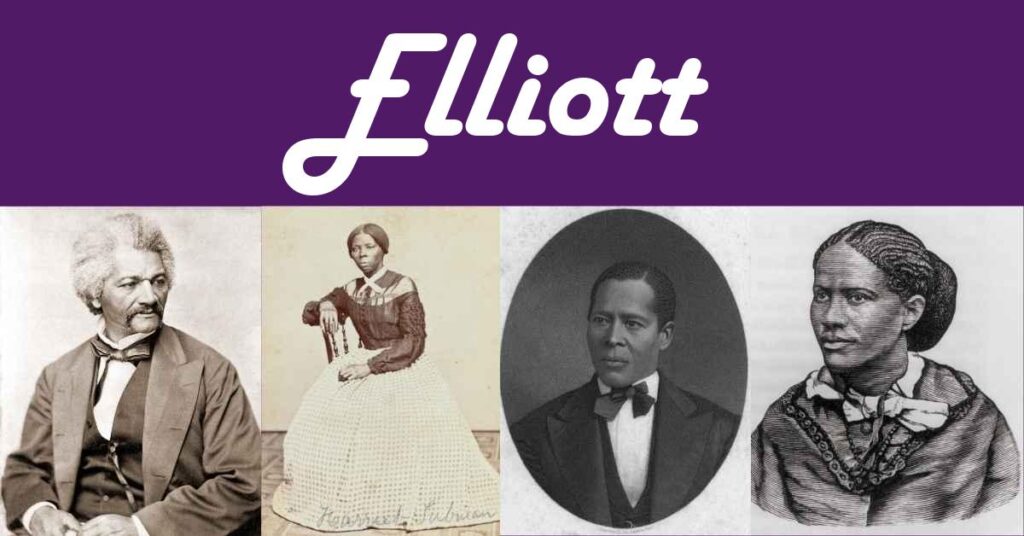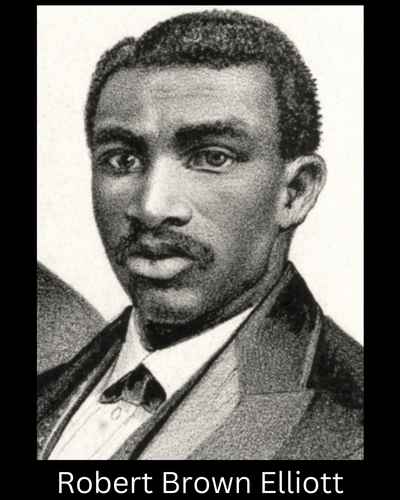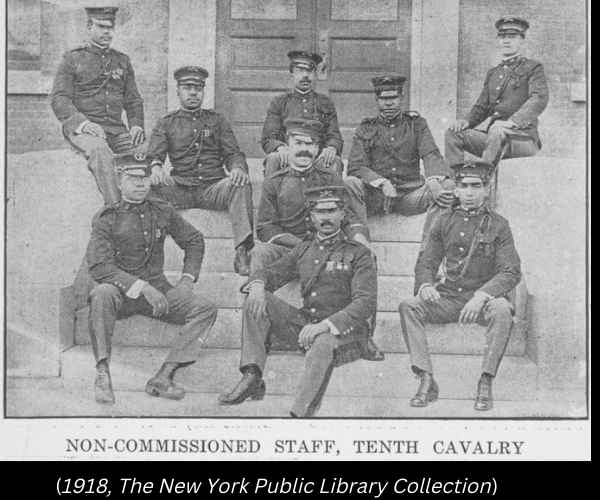The 2010 U.S. Census recorded 17,595 black Americans with Elliott as their last name. That represented 13% of the total of 135,765 entries.
This article compares census numbers before and after the Civil War. We also look at historic African American people named Elliott in the last three centuries.
We end with a review of early records of black military service in the United States.
Elliott Before The Civil War
The 1850 census was the first to record all free members of households together. Before this, people who were not white were not named in the federal census.
In 1850, there was a box to enter color on the census. There were three categories: white, black, and mulatto. The third term is the language of the time, and I will use mixed in this article.
If you are researching your black Elliott ancestors in census archives, be sure to check the two non-white categories. Do not assume that the people recording the information were always correct.
1850 Federal Census
There were 183 people named Elliott who were recorded as black in the 1850 census. 43 were recorded as mixed.
Because they are in the main federal census, we know that they were free citizens.
There was a total of 12,924 free citizens named Elliott that year. There would be one more census in 1860 before the Civil War.
After The Civil War

The 1870 census was the first survey after the Civil War and the Emancipation Proclamation. All African Americans were included.
Those who were omitted in 1850 and 1860 because they were enslaved were now recorded.
1,954 people named Elliott were recorded in the 1870 census as black and 376 as mixed.
There was a total of 22,341 people with the name.
Elliott In The 1900 And 1940 Census
The mixed category was dropped in 1900, so we just need to look at the black numbers this time.
The 1900 census recorded 3,455 people with the last name Elliott as black within a total of 42,934 that year.
By the way, the mixed category returned in the 1910 and 1920 censuses. It was dropped again in 1930, but replaced with extra categories for colored and non-white in a way that seems confusing now.
This changed again in 1940 and we can simply focus on one black category.
The 1940 census recorded 4,642 people named Elliott as black within a total of 67,520.
Historic Black Figures With The Elliott Surname

Here are some notable African Americans in history with Elliott as their last name.
Thomas Elliott
- Born: 1834
- From: Dorchester County, Maryland
The Underground Railroad was a network of safe houses and travel routes organized by many church and community leaders, civil rights activists, and abolitionists. Thousands of enslaved people were helped to escape from the South.
William Still kept substantial notes on fugitives who were helped on their way through Philadelphia. He published the notes in a book in 1872. There are many fascinating stories that are full of danger in the book.
For example, Thomas Elliott was one of six men and two women who were escaping together but were captured and taken to jail. A bounty of $3,000 had been put on their heads.
The young man played his part as the group broke out of their cell, jumped from a window, scaled a wall, and made it to Philadelphia.
You can read the full account in our excerpt on Thomas Elliott and The Underground Railroad.
Robert Brown Elliott
- Born: 1842
- Place of Birth: Liverpool, England
- Died: 1884
Robert Brown Elliott was born in England and moved to South Carolina in 1867 to practice law. He set up the first documented African American law firm with two black colleagues, Macon Allen and William Whipper.
He was elected to the state’s House of Representatives in 1868 and became a Republican congressman for two terms. He was a renowned orator and often quoted classical literature.
As a firm opponent of the Ku Klux Klan, he promoted legislation against them and in favor of civil rights. Elliott was elected as South Carolina’s Speaker of the House and became the state’s Attorney General in 1876.
However, the rise of white Democrats forced him out of political office. He found it difficult to secure legal work and was afflicted with poor health in later life.

Elliott In Black Military Records
Military records are a rich resource of for family history research. Here are examples of the Elliott surname from two different military services:
- Buffalo soldiers
- Black civil war sailors
Buffalo Soldiers
Five regiments for black soldiers were formed during the Civil War. They were known as the Buffalo Soldiers.
Their records are part of the national archive of military monthly returns. The information includes the year and place of birth, where they enlisted, their occupation, and their height.
One of the earliest military entries for Elliott was in June 1873. Peter Elliott was a Private in the Ninth Cavalry. He was stationed in June 1873 at Salineno Texas.
One of the later entries was in June 1912. Edward Elliott was a Private in the Tenth Cavalry. You can see a picture below of some members of that regiment about six years later.
If you are researching military ancestors, there is a free index of these records on Ancestry.com and FamilySearch.org. You have to create an account on either website, but you do not need to pay for the Buffalo Soldiers archive.

Black Civil War Sailors
The National Parks Service has a free archive of African American sailors during the Civil War.
The information includes their age, height, rank, occupation, and where and when they enlisted. It also includes every ship that they served on.
You can search the database on the National Parks website.
William Elliott
One of the earliest entries for Elliott was for William Elliott from Norfolk, Virginia. He enlisted in October 1863 at Boston when he was aged 23.
The record shows that William was assigned on May 1865 to the ship Casco.
His occupation before enlisting was as a Cook. His naval rank was Ordinary Seaman.
An ordinary seaman in the Navy is an apprentice who serves on the deck.
Marriatt Elliott
One of the later entries was for a sailor who enlisted at Hampton Roads in December 1863. Marriatt was aged 23 and was from Isle of Wight, Virginia.
He was assigned to the ship Young Rover on January 1865.
His occupation before enlisting was as a Farmhand. His naval rank was Landsman.
“Landsman” was the lowest rank at the time and was given to recruits with little sea experience.